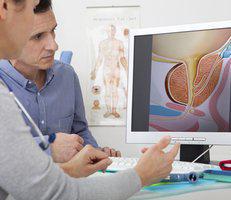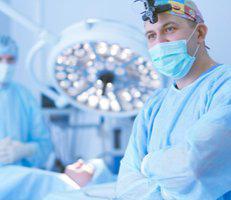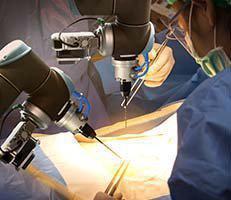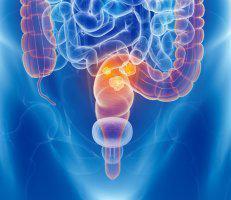Hernia Specialist
Joshua Ellenhorn, M.D., FACS
Board Certified General Surgeon & Surgical Oncologist located in CEDARS SINAI MEDICAL TOWERS, LOS ANGELES, CA
Hernias are a common problem where a piece of tissue or part of an organ squeezes through a gap into a place it doesn’t belong. Although they often don’t cause symptoms, sometimes, hernias can result in severe complications that require expert attention from an experienced surgeon like Joshua Ellenhorn, MD. Dr. Ellenhorn is a leading surgeon practicing in Beverly Grove, nearby Cedars-Sinai Medical Center in Los Angeles, California, who specializes in using minimally invasive laparoscopic and robotic-assisted techniques to repair hernias, including intraperitoneal only mesh repair (IPOM). Call today to find out more or book an appointment using the online form.
Hernia Q & A
What is a hernia?
A hernia is a piece of an organ or tissue that’s pushing through a weak spot or gap into another part of your body. Some of the more common types of hernia include:
Ventral (abdominal) hernia
A ventral hernia is one where the intestines or other abdominal tissues protrude through a weak place on the inside of the front part of your abdomen. There are three types of ventral hernia:
- Epigastric (stomach)
- Umbilical (belly button)
- Incisional (post-surgical)
Dr. Ellenhorn is often called upon to evaluate and treat patients with ventral abdominal hernias.
Inguinal hernia
One of the hernias Dr. Ellenhorn sees most often is the inguinal or groin hernia. The inguinal canal is an opening in the muscles of your abdomen. An inguinal hernia occurs when fat or a section of the intestine is pushing through into the inguinal canal in the groin. They can cause disfigurement or pain and even a bowel obstruction and cut off your intestinal blood supply, which requires surgery.
What are the symptoms of a hernia?
You can usually see and feel an inguinal or ventral hernia as a lump under your skin. In most cases, the lump protrudes more when you stand up, and goes down when you lie flat.
Many people have hernias that don’t cause them any bother. In general, abdominal hernias that have never caused symptoms, do not need to be treated. When hernias are causing symptoms, treatment is necessary. For patients not wanting to have surgery, a special hernia belt or truss can sometimes be used to prevent the hernia from coming out. Unfortunately these belts are uncomfortable and need to be worn all the time. For most people with hernias that cause symptoms, surgery is the only good option.
What does hernia surgery involve?
Where possible, Dr. Ellenhorn performs minimally invasive laparoscopic hernia repair. Laparoscopic and robotic techniques involve making small incisions that are just large enough for the laparoscope to pass through.
The laparoscope has a video camera on the end that shows Dr. Ellenhorn the hernia, so he can perform surgery without needing to make any large incisions. To reinforce the hernia repair, Dr. Ellenhorn might use prosthetic mesh to strengthen the area and prevent any more hernias. This is known as intraperitoneal onlay mesh repair (IPOM) or transabdominal preperitoneal (TAPP) repair.
Dr. Ellenhorn is also an expert in using the da Vinci® robotic-assisted surgery system to perform advanced hernia repair.
If you have a hernia, call Joshua Ellenhorn, MD, today to schedule a consultation or book an appointment online.











